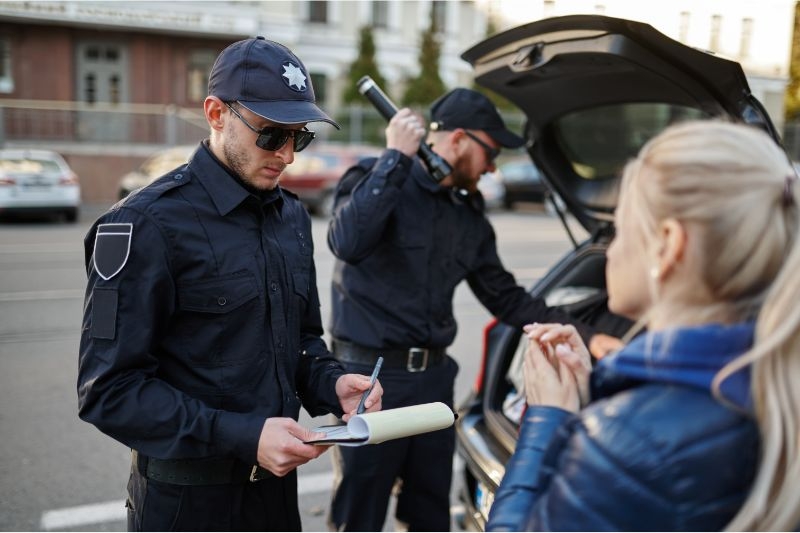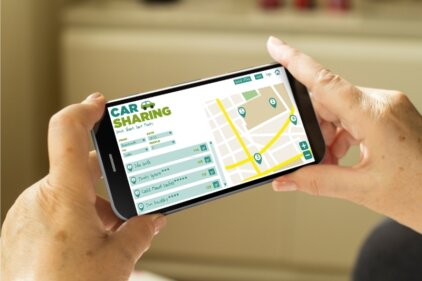As a responsible citizen, it is crucial to understand your rights and responsibilities during a police encounter. Knowing what you can and cannot do will help you navigate such situations with confidence and assertiveness. When stopped by the police, it is vital to remain calm and cooperative while also asserting your rights. The key is to strike a balance between cooperation and safeguarding your own interests.
One important right to be aware of is the right to remain silent. You are not legally obligated to answer any questions posed by the police, other than providing your identification if requested. It is advisable to politely inform the officer that you will exercise your right to remain silent until you have consulted with legal representation. This does not imply guilt but rather ensures that you do not incriminate yourself unintentionally.
Another crucial right is the right to refuse a search. Unless the police have a warrant or probable cause, you have the right to decline any searches of your person, vehicle, or belongings. Politely and firmly express your refusal, making sure to document the encounter by noting the time, place, and officers involved.
The importance of remaining calm and cooperative
Remaining calm and cooperative during a police encounter is essential. While it is natural to feel anxious or intimidated, it is crucial to keep your composure to avoid escalating the situation. Remember that police officers are trained to assess and respond to potential threats, and any sudden movements or confrontational behaviour may be perceived as a threat.
When approached by an officer, keep your hands visible and avoid making any sudden gestures. Be respectful and follow their instructions, as long as they do not violate your rights. Cooperating with the police does not mean giving up your rights, but rather ensuring your safety and the smooth progression of the encounter.
If you believe the officer’s conduct is unjust or inappropriate, it is advisable to comply in the moment and document the incident. This will provide valuable evidence should you decide to take legal action or file a complaint later. Remember, it is important to prioritize your safety and well-being above all else.
Essential steps to take when stopped by the police
When stopped by the police, it is crucial to take certain essential steps to protect your rights and ensure a safe encounter. Here are some important actions you can take:
- Remain calm: Take a deep breath and remind yourself to stay calm throughout the encounter. Panicking or becoming agitated can escalate the situation unnecessarily.
- Keep your hands visible: Place your hands on the steering wheel or keep them in plain sight if you are outside the vehicle. This helps the officer feel more at ease and reduces the likelihood of any misunderstanding.
- Be polite and respectful: Treat the officer with respect, using polite language and avoiding any confrontational behaviour. This can help de-escalate the situation and create a more positive interaction.
- Ask if you are free to leave: If you are unsure why you have been stopped or if the encounter is taking longer than necessary, politely ask the officer if you are free to leave. This can help clarify the situation and ensure your rights are being respected.
- Document the encounter: If you feel that your rights have been violated or the officer’s conduct is questionable, make a mental note of the officer’s badge number, patrol car number, and any other identifying details. This information will be helpful if you decide to file a complaint or seek legal action later.
Taking these steps can help protect your rights and ensure a smoother interaction with the police. Remember, the goal is to ensure your safety while asserting your rights within the boundaries of the law.
What to do if you believe your rights have been violated
In the unfortunate event that you believe your rights have been violated during a police encounter, it is important to take appropriate action. Here are some steps you can consider:
- Remain calm: It is understandable to feel upset or angry if your rights have been violated, but it is crucial to remain calm and composed. This will allow you to think clearly and take appropriate action.
- Document the incident: Write down all the details of the encounter as soon as possible. Include the date, time, location, the officer’s name and badge number, and any other relevant information. This documentation will be valuable if you decide to file a complaint or pursue legal action.
- Seek legal advice: Consult with a lawyer who specializes in civil rights or police misconduct. They can provide guidance on the best course of action based on your specific situation.
- File a complaint: If you believe your rights have been violated, you have the right to file a complaint with the relevant authorities. This can be done through the police department’s internal affairs division or an independent oversight agency.
- Gather evidence: Collect any evidence that supports your claim, such as witness statements, photographs, or video recordings. This can strengthen your case and provide a more comprehensive account of the incident.
Remember, it is important to seek professional advice before taking any legal action. A lawyer can guide you through the process and ensure that your rights are protected.
How to handle a traffic stop
Traffic stops are one of the most common types of encounters with the police. Knowing how to handle a traffic stop can help ensure a smooth and respectful interaction. Here are some tips:
- Pull over safely: When you see the police lights signaling you to stop, find a safe place to pull over. Use your turn signal to indicate your intention to comply.
- Stay in your vehicle: Unless instructed otherwise by the officer, remain in your vehicle with your hands on the steering wheel until they approach your window.
- Be prepared: Have your driver’s license, vehicle registration, and proof of insurance readily available. This will expedite the process and show the officer that you are cooperative.
- Follow instructions: Listen carefully to the officer’s instructions and follow them promptly. This includes providing the necessary documentation and answering basic questions such as your name and address.
- Avoid volunteering information: While it is important to answer basic questions, avoid volunteering additional information that is not directly relevant to the traffic stop. This can potentially incriminate you or prolong the encounter.
By following these guidelines, you can navigate a traffic stop in a responsible and respectful manner. Remember, the goal is to ensure your safety while also asserting your rights.
Tips for interacting with police officers
Interacting with police officers can be intimidating, but there are certain tips that can help ease the situation. Here are some suggestions:
- Remain calm and confident: Projecting a calm and confident demeanor can help establish a positive tone for the interaction. Take deep breaths, maintain eye contact, and speak clearly.
- Use respectful language: Address the officer as “Officer” or “Sir/Madam” and use polite language throughout the encounter. This can help create a respectful atmosphere and facilitate better communication.
- Avoid sudden movements: Sudden movements can be misinterpreted as a threat. To ensure your own safety and the safety of the officer, avoid any sudden gestures or reaching into your pockets without informing the officer.
- Do not argue or resist: While it is important to assert your rights, it is equally important to avoid arguing or resisting arrest. This can escalate the situation and potentially lead to additional charges.
- Comply with lawful orders: Unless a lawful order violates your rights, it is advisable to comply with the officer’s instructions. This can help de-escalate the situation and reduce the likelihood of further complications.
Remember, each police encounter is unique, and it is essential to use your judgment and prioritize your safety. These tips can serve as general guidelines, but it is important to adapt them to the specific circumstances of the situation.
Common misconceptions about police encounters
There are several common misconceptions surrounding police encounters that can lead to misunderstandings and unnecessary conflict. Here are a few misconceptions debunked:
- “I have to answer all the officer’s questions”: While it is important to provide your identification if requested, you have the right to remain silent and not answer any additional questions. This does not imply guilt or suspicion.
- “I am obligated to consent to a search”: Unless the police have a warrant or probable cause, you have the right to refuse a search. Politely express your refusal while making sure to document the encounter.
- “I can be arrested for filming a police encounter”: It is generally legal to film a police encounter in public spaces, as long as you do not interfere with the officer’s duties. However, it is advisable to familiarize yourself with the specific laws in your jurisdiction.
By understanding these misconceptions, you can approach police encounters with a clearer understanding of your rights and responsibilities.
Resources for further information and support
If you want to further educate yourself on your rights during police encounters or seek support, there are several resources available. Here are a few:
- Civil rights organizations: Organizations such as the American Civil Liberties Union (ACLU) or Liberty provide valuable information on your rights and guidance on handling police encounters.
- Legal aid clinics: Local legal aid clinics often offer free or low-cost legal advice and assistance to individuals who believe their rights have been violated.
- Community organizations: Community organizations focused on police accountability and civil rights can provide resources, support, and advocacy.
Remember, knowledge is power, and being informed about your rights can help you navigate police encounters more confidently.
The role of community organizations in advocating for police accountability
Community organizations play a vital role in advocating for police accountability and promoting positive change. These organizations work towards creating a system that is fair and just for all individuals. They provide support, resources, and education to empower individuals in their interactions with the police.
Community organizations often engage in activities such as organizing protests, advocating for policy reforms, and providing legal assistance. They also work to bridge the gap between law enforcement agencies and the communities they serve by promoting dialogue and transparency.
By getting involved with community organizations, you can contribute to the collective effort of holding the police accountable and fostering a safer and more just society.
Conclusion
Navigating police encounters can be daunting, but by understanding your rights, remaining calm and cooperative, and taking necessary steps to protect yourself, you can navigate these situations with confidence. Remember to prioritize your safety and well-being above all else, while also asserting your rights within the boundaries of the law. By being informed and prepared, you can ensure a more respectful and positive interaction with the police.





